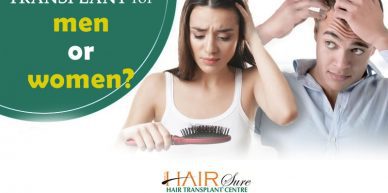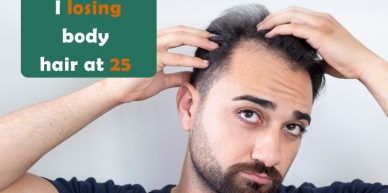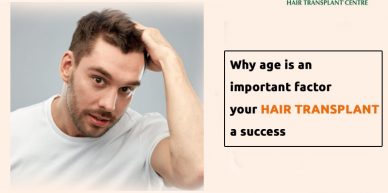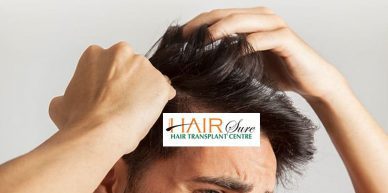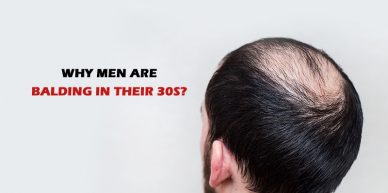Hair transplants are a cosmetic procedure for both men and women experiencing hair loss, often due to hereditary male or female pattern baldness. Hormonal changes, medical conditions, or trauma can also cause hair loss. The procedure involves taking hair follicles...
Top 10 illnesses that cause Hair Loss
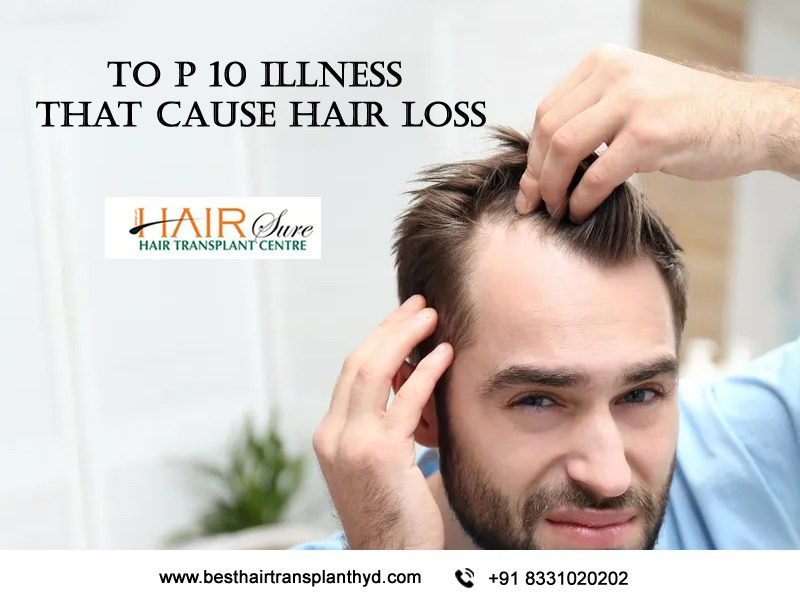
Hair loss affects the self-esteem in both men and women. Health issues like alopecia, nutrient deficiency, pregnancy, or medication use may cause hair loss. Treatment depends on the cause, but avoiding heat styling and lifestyle tips can help manage it. Hair loss may be linked to health issues and other factors. Here we look at the Top 10 illnesses that cause Hair Loss
1. Androgenetic alopecia:
Male or female pattern baldness is a hereditary condition causing gradual hair loss. Hair follicles become sensitive to dihydrotestosterone (DHT), causing shrinking and shorter growth phases. Over time, affected hair follicles produce thinner, shorter, and less pigmented hair.

Hair loss in androgenetic alopecia differs between men and women:
- Men: Typically, hair thinning begins at the hairline, resulting in a receding hairline that forms an “M” shape. Hair thinning may progress to the crown (top) of the head, eventually leading to partial or complete baldness.
- Women: Hair loss in women with androgenetic alopecia is characterized by diffuse hair thinning on the top of the scalp. Unlike men, women rarely develop a receding hairline or complete baldness but may experience significant hair thinning.
2. Alopecia areata:
Alopecia areata is an autoimmune disease affecting hair follicles, causing hair loss and bald patches. Its cause is unknown, but it involves genetic and environmental factors. It affects individuals of all ages, genders, and ethnic backgrounds and is not contagious.
Symptoms of alopecia areata:
- Patchy hair loss: Alopecia areata causes hair loss through rounded, smooth patches on the scalp, often devoid of hair and surrounded by normal growth.
- Spontaneous hair regrowth: Hair regrows without treatment but may temporarily recur or worsen.
- Complete hair loss: Alopecia areata can lead to total or universal hair loss, affecting scalp and body hair.
3. Thyroid disorders:
Thyroid disorders affect thyroid gland function, affecting hormone production and metabolism regulation.
Thyroid disorders are categorized into two main types:
Hypothyroidism: Hypothyroidism is a thyroid gland imbalance causing symptoms like fatigue, weight gain, hair loss, and constipation.
Hyperthyroidism: Hyperthyroidism, the opposite of hypothyroidism, results from excess thyroid gland hormones, causing weight loss, hair thinning, and anxiety.
Thyroid disorders impact hair growth, loss, and development, causing thinning, brittle, or loss.
4. Iron deficiency anaemia:
Iron deficiency anaemia is a common condition resulting from insufficient iron production for healthy red blood cells containing haemoglobin, a vital protein for oxygen transport.
Symptoms:
Iron deficiency anaemia causes symptoms like fatigue, weakness, pale skin, shortness of breath, dizziness, headache, cold hands, brittle nails, hair loss, and cognitive difficulties.
5. Polycystic ovary syndrome (PCOS):
PCOS is a hormonal disorder affecting reproductive-age women, causing multiple cysts, irregular menstrual cycles, and hormonal imbalances due to genetic and environmental factors.
Symptoms:
PCOS affects women with irregular menstrual cycles, hormonal imbalances, enlarged ovaries, metabolic abnormalities, and fertility issues. These issues can cause acne, hair growth, baldness, and ovular cysts. Elevated androgen levels can lead to weight gain, difficulty losing weight, and an increased risk of developing type 2 diabetes and cardiovascular disease.
6. Scalp infections:
Fungal infections: Fungal infections, like tinea capitis or scalp ringworm, are usually present in children and cause itching, redness, scaling, and hair loss.
Bacterial infections: Bacterial infections of the scalp can result from skin breaks, wounds, or underlying conditions, causing inflammation of hair follicles and cellulitis, causing pain, redness, swelling, pus-filled lesions, and fever.
Viral infections: Viral infections like HSV and VZV cause scalp symptoms like blisters, itching, and inflammation, while Herpes zoster reactivates the varicella-zoster virus in affected nerve pathways.
Parasitic infections: Head lice infestations, caused by parasitic insects, cause scalp itching, red bumps, and visible nits, primarily in children and spread easily through close contact.

Scalp infections, caused by microorganisms like bacteria, fungi, viruses, or parasites, affect scalp skin and cause symptoms. Treatments include topical or oral medications, and lice infestations require specific treatments. Consult a healthcare professional or dermatologist for evaluation, diagnosis, and treatment to determine the cause and appropriate action.
7. Cancer:
Cancer treatments like chemotherapy and radiation therapy can cause hair loss, targeting hair follicles and causing localized damage, affecting the overall health of the affected area.
8. Pregnancy:
Pregnancy causes hormonal changes, leading to longer hair follicles. Postpartum hair loss, or telogen effluvium, occurs when hormone levels drop rapidly, causing hairs to enter the resting phase and shed. This temporary issue typically returns within a few months. Consult a healthcare professional for evaluation and guidance on severity and duration.
Reasons for hair loss during pregnancy include:
- Hormonal changes: Pregnancy causes hormonal changes in a woman’s body, with elevated estrogen extending hair follicle growth. However, postpartum hair loss occurs due to decreased hormone levels, causing hairs to enter the resting phase and eventually shed.
- Delayed hair shedding: Hair follicles typically rest in the telogen phase during pregnancy, but elevated hormone levels can delay shedding. After childbirth, hairs enter the shedding phase simultaneously, causing noticeable hair loss.
- Anagen effluvium: Hormonal changes during pregnancy can cause anagen effluvium, hair loss due to weakened shafts, causing noticeable thinning and loss.
- Nutritional factors: Pregnancy demands increased nutrient intake for the developing baby, leading to hair loss and nutritional deficiencies like iron, biotin, and zinc.
- Emotional factors: Pregnancy, childbirth, and postpartum stress can cause hair loss, disrupting the growth cycle and increasing shedding.
Postpartum hair loss can be managed through a healthy lifestyle, balanced diet, stress management, and adequate nutrient intake, ensuring overall hair health during and after pregnancy.
Postpartum hair loss can be managed through a healthy lifestyle, balanced diet, stress management, and adequate nutrient intake, ensuring overall hair health during and after pregnancy.
9. Autoimmune disorders:
Autoimmune disorders like alopecia areata and SLE involve the immune system attacking tissues, causing hair loss. Mechanisms involve genetic and environmental factors, and the exact mechanisms remain unclear.
10. Hormonal imbalance:
Hormonal imbalances like PCOS and thyroid disorders disrupt hair growth cycles, causing hair loss or excessive growth. Hypothyroidism causes hair loss, while hyperthyroidism causes thinning.
Cancer treatments, hormonal changes, autoimmune disorders, and imbalances disrupt hair growth, causing hair loss. Consult a healthcare professional for evaluation and management options.
Precautions:
Hair loss caused by cancer, pregnancy, autoimmune disorders, or hormonal imbalances requires personalized care. Consult healthcare professionals for personalized recommendations based on individual circumstances.
Diet:
A healthy diet supports hair health and growth but may not cure hair loss caused by cancer, pregnancy, autoimmune disorders, or hormonal imbalances. Consult a healthcare professional or registered dietitian for personalized advice, assessing nutritional needs and medication interactions.
At Cyber HairSure, we are dedicated to a policy of offering patients unmatched services. At Cyber HairSure Advanced Hair Transplant Clinic, all of your hair-related worries can be expertly resolved, and you can rest assured that your smiles won’t flinch again. Enter Cyber HairSure and exit with the desired appearance.
Cyber HairSure can assist in determining the precise reason for hair loss and offer suitable treatment solutions that are suited to the requirements of the individual. Always consult a medical expert when you have questions about your health. Always consult a medical expert when you have questions about your health.
We at Cyber HairSure, are committed to providing matchless services to all our patients. All your concerns regarding hair problems can be flawlessly sorted at Cyber HairSure Advanced Hair Transplant Clinic, guaranteeing that you will be left with smiles that won’t fall again. Walk into Cyber HairSure and walk back with the look that you desire. Call 040 49540202 / 8331020202 or email us at cyberhairsure@gmail.com to book your consultation. Visit our website, Hair Transplant Clinic, to know more.


